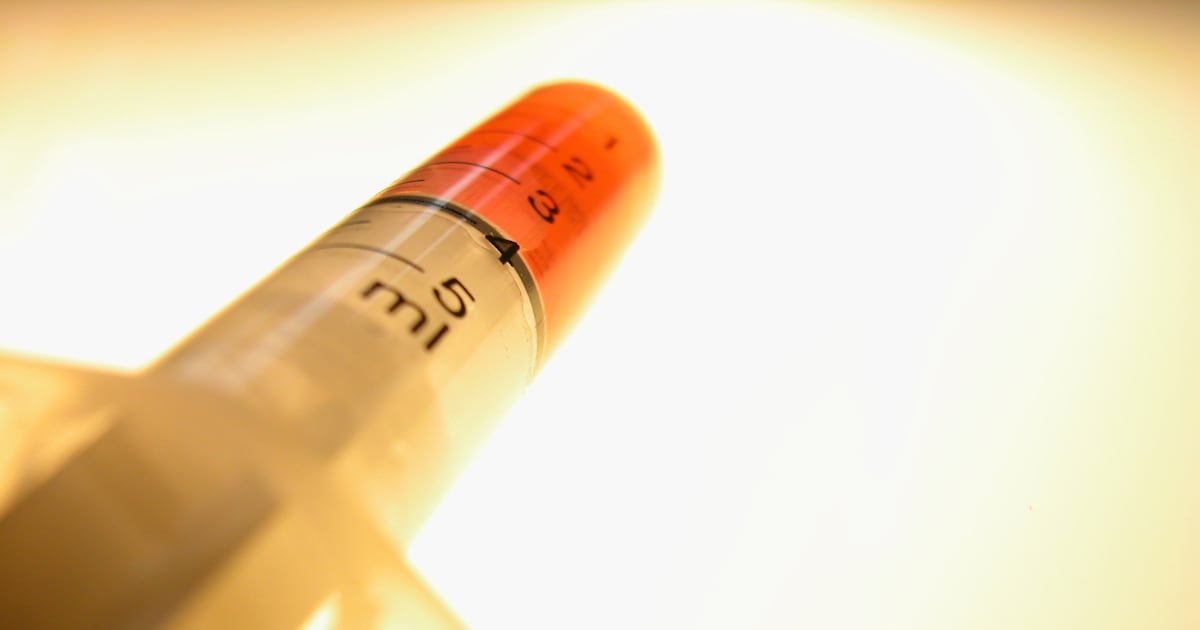Science
Liquid Biopsies Revolutionize Cancer Detection and Monitoring

In a significant advancement for oncology, liquid biopsies are emerging as a less invasive and more accessible method for cancer detection. Traditional biopsies, while essential for diagnosing cancer, often require uncomfortable procedures that can involve trips to hospitals and considerable pain, particularly in advanced cases. Dr. Stuart Edmonds, the Executive Vice President of Mission, Research, and Advocacy at the Canadian Cancer Society, emphasizes that despite their discomfort, these procedures provide crucial insights into cancerous tumours.
The innovative method of liquid biopsy allows for the identification of cancer through a simple blood sample. This technique examines biological markers—referred to as biomarkers—that indicate the presence of cancer. These biomarkers can include fragments of DNA, cells, and proteins released by tumours into the bloodstream. According to Dr. Edmonds, many health centres in Canada are now incorporating liquid biopsies into their cancer diagnosis and treatment protocols.
Potential Impact on Early Detection
Liquid biopsies represent a game-changing approach, particularly for aggressive cancers such as lung and ovarian cancer, which are frequently diagnosed at late stages. Dr. Edmonds notes that many cancers do not present noticeable symptoms early on, making timely detection challenging. The introduction of affordable and safe tests can facilitate quicker diagnoses and potentially save lives.
Dr. Peter Jianrui Liu, co-founder and CEO of Oxford Cancer Analytics (OXcan), is spearheading the development of a blood test aimed at early detection of lung cancer, which leads to over 20,000 deaths annually in Canada. Liu’s personal experience with cancer in his family motivated his commitment to finding early-stage biomarkers in the bloodstream. His team has identified 20 biomarkers through a meticulous analysis of over 5,000 proteins, achieving more than 90 percent accuracy in detecting lung cancer.
Liu points out that early detection not only has the potential to save lives but also reduces costs for the healthcare system, as late-stage treatments are significantly more expensive. The lung cancer test represents a crucial first step for OXcan, with plans to explore biomarkers for other types of cancer and conditions such as autoimmune disorders.
Enhancing Treatment Monitoring
Liquid biopsies also promise to improve the management of late-stage cancer treatments. These tests allow doctors to monitor tumour growth and response to therapies without the need for frequent invasive procedures. Traditional monitoring methods, such as tissue biopsies and scans, often require hospital visits and can be costly.
Dr. Irsa Wiginton, co-founder of mDETECT, highlights the affordability and accessibility of liquid biopsies. The lung cancer test developed by her company costs around $500, making it feasible for healthcare providers operating on tight budgets to conduct these tests more frequently. This approach enables timely adjustments to treatment plans, which is especially critical when expensive therapies like immunotherapy are not effective.
Wiginton emphasizes that the convenience of liquid biopsies can particularly benefit patients in rural or remote areas, where access to specialized medical facilities may be limited.
While companies like OXcan and mDETECT focus on specific cancers, others, including Toronto-based Adela, aim to create liquid biopsy tests capable of screening for multiple cancers simultaneously. This advance could streamline the screening process, allowing for broader accessibility in family practices and local medical labs.
Despite the advantages, Dr. Edmonds cautions that the potential for false positives could lead to unnecessary stress for patients and strain on healthcare resources. Nonetheless, he remains optimistic about the future, stating that the integration of molecular testing, advanced medical imaging, and artificial intelligence could drastically improve cancer detection and treatment outcomes.
As institutions continue to invest significantly in cancer research, the translation of these innovations into clinical practice marks a pivotal moment in the fight against cancer. Dr. Edmonds reflects on this progress with enthusiasm, indicating that the information derived from liquid biopsies could transform oncology, paving the way for personalized cancer treatment strategies.
-

 Science3 months ago
Science3 months agoToyoake City Proposes Daily Two-Hour Smartphone Use Limit
-

 Top Stories3 months ago
Top Stories3 months agoPedestrian Fatally Injured in Esquimalt Collision on August 14
-

 Health3 months ago
Health3 months agoB.C. Review Reveals Urgent Need for Rare-Disease Drug Reforms
-

 Technology3 months ago
Technology3 months agoDark Adventure Game “Bye Sweet Carole” Set for October Release
-

 World3 months ago
World3 months agoJimmy Lai’s Defense Challenges Charges Under National Security Law
-

 Lifestyle3 months ago
Lifestyle3 months agoVictoria’s Pop-Up Shop Shines Light on B.C.’s Wolf Cull
-

 Technology3 months ago
Technology3 months agoKonami Revives Iconic Metal Gear Solid Delta Ahead of Release
-

 Technology3 months ago
Technology3 months agoApple Expands Self-Service Repair Program to Canada
-

 Technology3 months ago
Technology3 months agoSnapmaker U1 Color 3D Printer Redefines Speed and Sustainability
-

 Technology3 months ago
Technology3 months agoAION Folding Knife: Redefining EDC Design with Premium Materials
-

 Business3 months ago
Business3 months agoGordon Murray Automotive Unveils S1 LM and Le Mans GTR at Monterey
-

 Technology3 months ago
Technology3 months agoSolve Today’s Wordle Challenge: Hints and Answer for August 19









